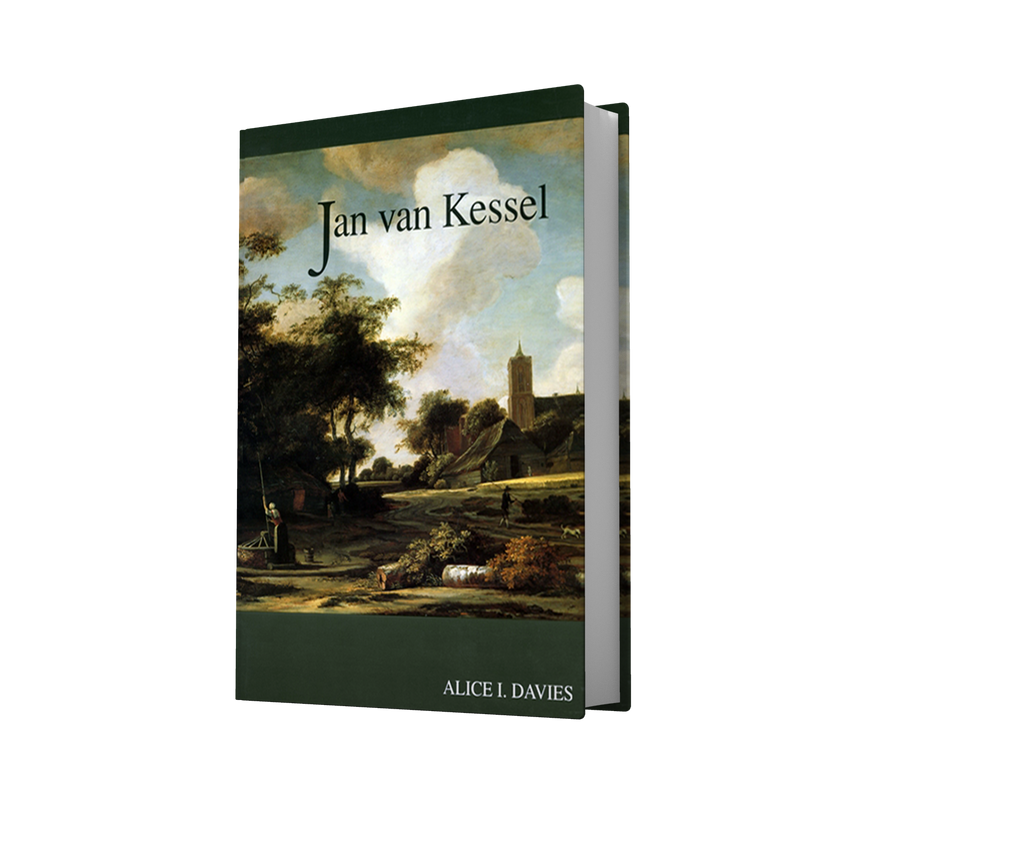
JAN VAN KESSEL (1641-1680)
aetas aurea x
Alice I. Davies
1993. 4to. VIII, 335 pp. text and 411 ills. on 244 plts. (11 in color). Cloth bound with dustjacket
ISBN 90 70288 81 8
JAN VAN KESSEL (1641-1680) is a monograph and catalogue raisonné introducing a little-known but talented Amsterdam follower of Jacob van Ruisdael. Many art professionals outside of the speciality of seventeenth- century Dutch landscape do not realize that he existed, with the result that his works sometimes are assigned to the contemporary (but unrelated) Antwerp painter of the same name. Few specialists are aware that the Dutch Jan van Kessel covered the entire range of subjects produced by his presumed teacher Jacob van Ruisdael. Ruisdael's style was not the only one he emulated; he also imitated his friend Meindert Hobbema (village scenes, water mills, woods), Allart van Everdingen (waterfalls), Jan Wijnants (wooded landscapes), Jan van de Cappelle (winterscenes), and others. A high percentage of the paintings in the accompanying catalogue were once attributed to these other artists (often with an authentic Kessel signature covered by a better-known name). Clarification of Jan van Kessel's production provides the solution to numerous problems of attribution plaguing the Ruisdael School.
The monograph text starts with a critique of the artist's reception to date, both in terms of the public exhibition of his work and the appraisals of him in scholarly literature. Next, his biography is updated using primary and secondary sources, including unpublished data from the Amsterdam Municipal Archives. Then, Jan van Kessel's paintings and drawings are given a general introduction, with special attention paid to the development that occurred in the way he signed his name. The main body of the monograph is devoted to his art, presented chronologically from the artist's documented start in 1661 until his early death in 1680. Discussion covers the internal development of his style, the interrelationships between paintings and drawings, and his dependency (and interdependency) on the production of other masters. Since the focus is on the paintings, the drawings are treated also in a separate chapter. The monograph ends with the brief identification of other minor Ruisdael followers whose drawings and paintings are confused with Kessel's, as the Ruisdael school is an area in particular need of further study.
The catalogue raisonné contains fully documented entries (Provenance, Exhibitions, Literature) with discussions up to a thousand words in lenght. The 290 works catalogued are organized into six sections: Authentic (120), Problematic (19), Doubtful Paintings (44); Authentic (68), Problematic (13), Doubtful Drawings (26). All entries are illustrated.



